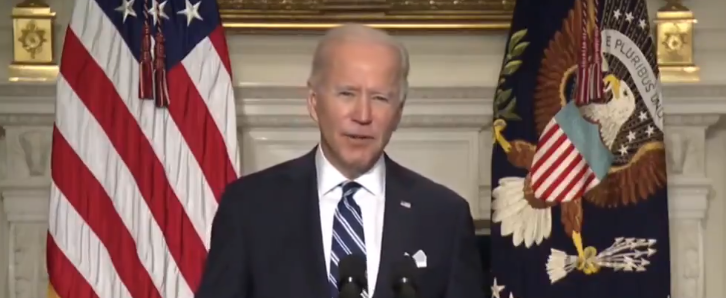
As the old saying goes, from small acorns big oaks trees grow. Anyone who has been on the frontline in the climate fight knows that it can takes years for policy change to come about.
Ideas first put forward by activists and academics can take years to germinate, grow and take hold within mainstream politicians and policy makers.
One such idea centers around subsidizing the fossil fuel industry. The argument against the idea is not complicated: why give extra money to some of the richest and powerful companies there are? Why pay money to a company to exacerbate a crisis that will in turn cost money, lives and livelihoods and potentially steal our future. It is nonsensical. It always has been and always will be. But when activists first mooted the idea it was novel and new.
Way back in 2006, Oil Change International, along with a bunch of other NGOs such as AmazonWatch and Milieu Defence issued a report entitled “Drilling into Debt” which looked at the relationship between debt and oil. The report made key recommendations including:
“End Oil Aid. OECD countries should end Northern governmental subsidies for new oil projects in the South. Such projects have not historically provided energy for the poor, and are proven to be associated with increases in poverty, conflict, and debt, and to increase the risk to the poorest from climate change. They cannot be considered aid.”
It was one of the first reports, to my knowledge, to raise the issue of subsidies for oil and gas projects, especially in the Global South. OCI returned to the theme a year later, as my colleague David Turnbull pointed out yesterday on Twitter:
To say @PriceofOil has been at this #StopFundingFossils game a while…well…would be true. https://t.co/1iDHCNhm3r
— David Turnbull (@david_turnbull) January 28, 2021
The issue #StopFundingFossils became a central pillar of OCI’s work. It still is.
If you log on to OCI’s website it shows the campaign to be one of the three main program areas. The website states: “Our research shows that G20 governments spend $444 billion per year propping up oil, gas, and coal production, while the G20’s taxpayer-backed public finance institutions provide nearly 4 times more public finance to fossil fuels than to clean, renewable energy.”
Slowly over the years, the campaign to stop funding fossils has grown and grown amongst activists and academics. It has begun to be taken seriously as an idea. And the more popular it became the more it was hated by the oil industry and its allies. The call for action died a death in the toxic climate denial agenda of the Trump Administration.
But those days are gone and we have a new Presidency. We have new hope.
And yesterday, on his “climate day,” Biden said in his speech: “Unlike previous administrations, I don’t think the federal government should give handouts to big oil to the tune of $40 billion in fossil fuel subsidies. And I’m going to be going to the Congress asking them to eliminate those subsidies.”
Make no mistake these are historic words, which brought widespread praise from civil society groups. And although these words now need to be put into action, this is an historic moment to rid the globe of these devastating subsidies.
OCI tweeted:
“Unlike previous administrations, I don’t think the federal government should give handouts to Big Oil — to the tune of $40 billion dollars in fossil fuel subsidies.”
We agree, @POTUS. Time to #StopFundingFossils. pic.twitter.com/rq69cm4wUE
— Oil Change International (@PriceofOil) January 27, 2021
Alex Doukas, the Stop Funding Fossils Program Director at OCI added that “Not only has President Biden instructed federal agencies to identify and remove domestic fossil fuel subsidies wherever they are able to, he has also instructed the relevant departments and agencies to use the diplomatic weight of the United States to end international public finance for fossil fuels as well. This would be a huge boost to climate action globally.”
Doukas continued by stating that: ““Today’s announcement by President Biden comes on the heels of recent commitments from the United Kingdom and European Union to end their international public finance for fossil fuels, and adds to the snowballing momentum and pressure for other governments and institutions to follow suit.”
“If the U.S., EU, and UK join forces to end the tens of billions of dollars per year in public finance for fossil fuels, they can work together to make this a reality by the UN climate summit in Glasgow this November,” noted Doukas.
Others tweeted about how this policy had been years in the making:
Shout out to the climate movement that made today possible. pic.twitter.com/jrHzSKQEF0
— Jamie Henn (@jamieclimate) January 27, 2021
But there was more climate action from Biden too beyind subsidies. The President also promised to “stop issuing new oil and gas leases on public lands and offshore waters, wherever possible” and to “review and reset the oil and gas leasing program.”
He also promised that “environmental justice will be at the center of all we do addressing the disproportionate health and environmental and economic impacts on communities of color — so-called “fenceline communities” — especially those communities — brown, black, Native American, poor whites.
Again this drew widespread praise:
Inbox: @sunrisemvmt celebrates Biden’s slew of climate actions today, says he “is serious about using executive power to deliver on his campaign promises” pic.twitter.com/V7YZ6lpnT2
— Robinson Meyer (@yayitsrob) January 27, 2021
Robert Bullard, a Professor at Texas Southern University and longtime environmental justice advocate, also told the Washington Post: “When you have the most powerful legal department in the country saying that environmental justice is a basic right, I think that is a signal being sent across the country to say that this is real at the highest level,” Bullard said.
Sometimes it is great to gauge the reaction of the industry with the so-called scream test. The louder the scream, the more you know they are in trouble.
Today Bloomberg reported that “Oil and gas companies knew they would face a fight with President Joe Biden, who had campaigned on tackling climate change. Nobody expected fossil fuel to come under such an immediate attack.”
According to Bloomberg, the raft of climate policies has left the industry “stunned” with fossil fuel stocks “plunging” due to his actions. “The industry is aghast at these changes,” Dan Eberhart, chief executive of oil-field services company Canary Drilling Services, told Bloomberg. “They are more direct, more fierce and quicker than what folks expected.”
The response from the industry reveals once again that they believe the climate emergency is someone else’s problem. They can just keep drilling. Every day comes more brutal news of the state we are in, with new research showing the Earth is now hotter than it has been for 12,000 years.
Reporting on the findings Samantha Bova, from Rutgers University–New Brunswick in the US, who led the research, told the Guardian. “This means that the modern, human-caused global warming period is accelerating a long-term increase in global temperatures, making today completely uncharted territory”.
And that is why Joe Biden said yesterday: “In my view, we’ve already waited too long to deal with this climate crisis and we can’t wait any longer.”

